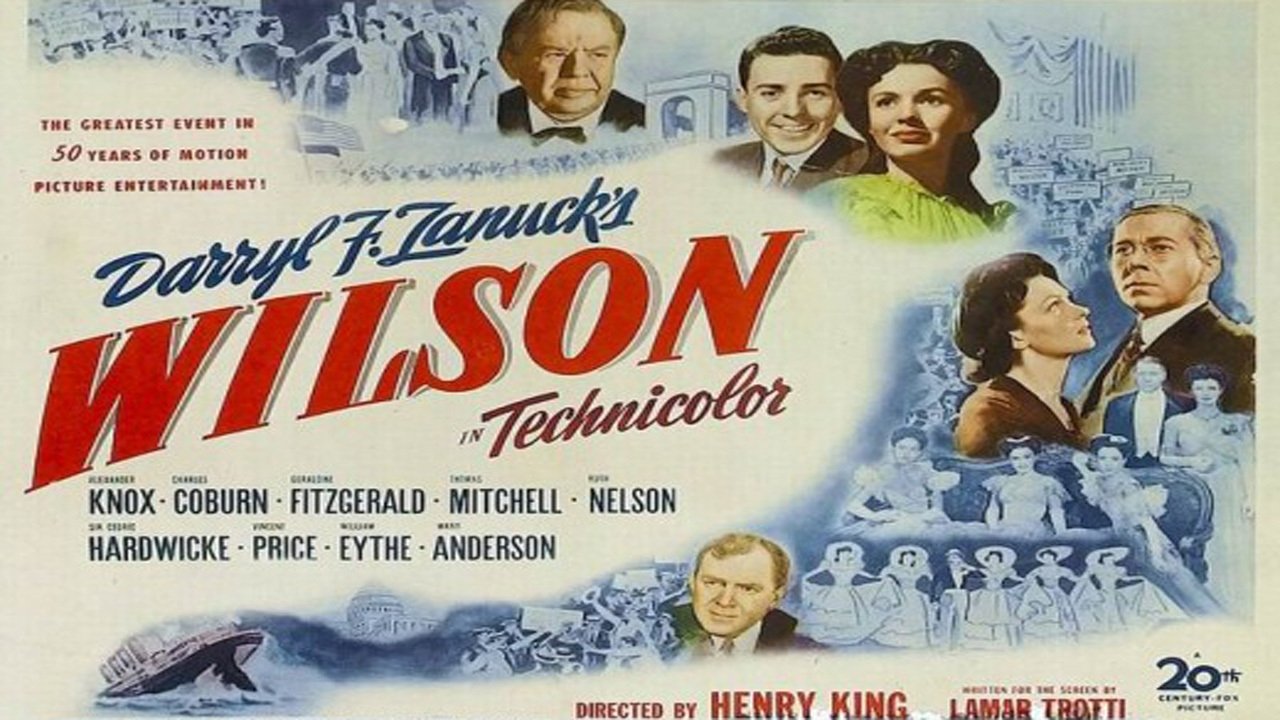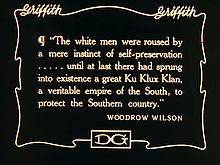Segundo o site
Huffington Post, Woodrow Wilson foi o terceiro pior presidente da história dos
Estados Unidos, enquanto seu antecessor, William Howard Taft, foi o melhor de
todos. O site Rant Political, entretanto, coloca Wilson entre os 15 melhores e
o chama de visionário. Se Wilson não tivesse governado durante a Primeira
Guerra Mundial, proposto 14 pontos de paz e idealizado a Liga das Nações,
provavelmente estaria ainda mais esquecido – e certamente eu, uma blogueira
brasileira, nunca teria ouvido falar dele.
According to the website
Huffington Post, Woodrow Wilson was the third worst president of the United
States, while his predecessor, William Howard Taft, was the best of them all.
The website Rant Political, however, puts Wilson among the 15 best presidents
and calls him a visionary. If Wilson was not the governor during World War I,
after which he proposed 14 peace points and had the idea of the League of
Nations, he would be even more forgotten – and certainly I, a Brazilian
blogger, would have never heard about him.
Obviamente, é difícil e
polêmico fazer um ranking do pior para o melhor presidente. Há subjetividade,
há o saudosismo dos que viveram sob governos passados, há objetividade e uma
visão diferente daqueles que governaram há mais de cem anos. Por isso, para
investigar a figura de Woodrow Wilson, resolvi levar em conta outra fonte, tão
parcial e cheia de defeitos quando uma lista na internet: uma cinebiografia!
Obviously, it is difficult
and polemic to rank the presidents from worst to best. There is subjectivity,
there is the nostalgia from those who lived during their terms, there is
objectivity and a distinct vision from those who study about a president who
ran the nation more than 100 years ago. That’s why I chose to investigate
Woodrow Wilson using another source of information, as biased and full of defects
as a list on the internet: a biopic!
A cinebiografia começa
com a mesma pompa e circunstância de um filme sobre a vida de um santo. Um
texto diz que, “às vezes, a vida de um homem espelha a vida de uma nação” e
coloca Woodrow Wilson no mesmo patamar de dois adorados presidentes: George
Washington a Abraham Lincoln.
The biopic starts with the
same pomp and circumstance of a biopic of a saint. A text says that,
“sometimes, the life of a man mirrors the life of a nation” and puts Woodrow
Wilson at the same level of two beloved presidents: George Washington and
Abraham Lincoln.
Em 1909, Woodrow Wilson
(Alexander Knox) era apenas o humilde reitor da Universidade de Princeton. Ele
reluta em aceitar um convite para concorrer ao cargo de governador de New Jersey,
mas acaba convencido a tentar pela esposa e pelas filhas.
In 1909, Woodrow Wilson
(Alexander Knox) was just the humble dean of Princeton University. He hesitates
to accept an invitation to run for the place of governor of New Jersey, but he
makes up his mind thanks to his wife and daughters’ support.
Como governador, ele
desafia o poderoso senador Big Ed Jones (Thurston Hall), que foi exatamente o
responsável por inserir Wilson na política. Ao impedir que Big Ed se
candidatasse à reeleição como senador, Wilson ganha popularidade e se torna um
queridinho da mídia – e logo o povo clama que ele seja candidato à presidência.
As a governor, he challenges
powerful senator Big Ed Jones (Thurston Hall), exactly the man responsible for
the start of his political career. When he impedes Big Ed to run for
re-election, Wilson becomes more popular and gains a lot of sympathy from the
media – and soon the people start rallying for him to run for president.
Uma vitória heroica
sobre o pré-candidato favorito, discursos memoráveis sobre direitos humanos,
liberdade, comparações com Abraham Lincoln, a morte da esposa de Wilson, Ellen
(Ruth Nelson), uma guerra na Europa: ingredientes perfeitos para pintar Woodrow
Wilson como um homem verdadeiramente admirável.
An heroic victory over the
favorite pre-candidate, memorable speeches about human rights, freedom,
comparisons with Abraham Lincoln, the death of Wilson’s wife, Ellen (Ruth
Nelson), a war in Europe: the perfect ingredients to paint Woodrow Wilson as a
truly remarkable man.
Como candidato à
reeleição, ele precisa calcular as consequências de sua decisão de se casar
novamente, desta vez com Edith Bolling Galt (Geraldine Fitzgerald), e também
provar que sua estratégia de não envolvimento com a guerra não é um ato de
covardia, mas uma tentativa de diplomacia.
As candidate for
re-election, he must calculate the consequences of marrying Edith Bolling Galt
(Geraldine Fitzgerald), and also prove that his no-war strategy is not a sign
of cowardice, but an attempt of being diplomatic.
Obviamente, “Wilson” é
um filme feito pontualmente para 1944: com os Estados Unidos envolvidos em
outra guerra contra a Alemanha, após outra tentativa de manter distância do
conflito. O único projeto pelo qual Wilson lutou intensamente, a Liga das Nações,
fracassou e, acreditava-se na época, poderia ter evitado outra guerra.
Obviously, “Wilson” is a
film that could only be made in 1944: with the USA involved once again in a war
against Germany, right after another attempt to be away from the battlefield.
The only project that Wilson was passionate about, the League of Nations,
failed, and it was believed at the time that his idea could have prevented
another war.
Darryl F. Zanuck
acreditava que os Estados Unidos precisavam de outra injeção de ânimo e sua
ideia era fazer de “Wilson” seu maior sucesso. Apesar dos cinco Oscars ganhos
(Edição, Fotografia a Cores, Direção de Arte, Roteiro Original e Mixagem de
Som), o filme foi um fracasso de bilheteria, desapontando inclusive Winston
Churchill, que saiu no meio de uma exibição do filme.
Darryl F. Zanuck believed
that the United States needed another mood boost and his idea was to make of
“Wilson” her greatest success ever. It may have won five Oscars (Editing,
Cinematography - Color, Art Direction - Interior Decoration, Sound - Recording,
Original Screenplay), but the film was a box office failure and even
disappointed Winston Churchill, who left a screening to go to bed.
Wilson é mostrado como
um homem simples, caseiro, que gostava de cantar ao lado do piano com sua
família, honesto, corajoso, sem ambição, mas movido por um forte senso de
justiça, à mesma maneira de “A Mocidade de Lincoln” (1939).
Wilson is shown as a simple
man, loving his home, enjoying singing by the piano with his family, an honest,
bold, ambitionless less, moved by a strong sense of justice, exactly like in
“Young Mr. Lincoln” (1939).
Ele é mostrado como
alguém que quer acabar com os privilégios de classes, mas o filme “esquece” de
mencionar que Woodrow Wilson era simpatizante da Ku Klux Klan e foi durante seu
governo que a segregação racial se fortaleceu. Mas temos aqui uma ajudinha do
bom, velho e nem sempre confiável D.W. Griffith para refrescar nossa memória:
He is shown as someone who
wants to end class privileges, but the film “forgets” to mention that Woodrow
Wilson sympathized with the Ku Klux Klan and it was during his government that
racial segregation became stronger. But we have here a little help from good,
old, not always reliable D.W. Griffith to refresh our memory:
Sim, no governo de
Wilson foi concedido o voto às mulheres, mas ele só apoiou a ideia porque
precisava: na verdade, Wilson acreditava que as mulheres poderiam votar em
cargos municipais e estaduais, mas não para presidente. E olhe que ironia: após
um derrame que o debilitou seriamente, Wilson passou a depender da segunda
esposa para governar o país. Sim, era 1919 e quem comandava os Estados Unidos
era uma mulher.
Yes, it was during Wilson’s
administration that women were allowed to vote, but he only supported the idea
because he had no other option: in fact, Wilson believed that women could vote
for mayor and governor, but never for president. And look how ironic: after a
stroke that left him seriously debilitated, Wilson relied on his second life to
rule the country. Yes, it was 1919 and it was a woman who ran the United
States.
| Wilson and Edith |
Alexander Knox se
parece muito com Wilson, embora seja muito mais novo que o biografado. Ele
passa confiança e seriedade. Gostaria de ter visto mais de Charles Coburn, que
interpreta um amigo de Wilson de Princeton, e diz uma ótima frase: “Toda
eleição é decepcionante, meu jovem, se você tem o azar de ser eleito”.
Alexander Knox looks a lot
with Wilson, although he was much younger than the president when the film was
made. He looks trust-worthy and serious. I’d like to have seen more of Charles
Coburn, who plays a friend of Wilson’s from Princeton and has this great quote:
“Any election is an upset, young man, if you’re unfortunate enough to be
elected”.
“Wilson” é um filme
bonito de se ver, por ser em cores e ter cenas grandiosas em belos cenários. É,
como toda cinebiografia, um exercício de desconfiança, mas tornado ainda maior
por ser tão parcial ao retratar um presidente que estava longe de ser santo –
ou o segundo Lincoln.
“Wilson” is a feast for the
eyes, because it is a color movie with grand scenes in wonderful sets. It is,
as any biopic, an exercise in distrust, but made even bigger because it is so
biased when trying to portray a president who was not a saint – nor the second
Lincoln.
This is my contribution to the Hail-to-the-Chief blogathon, hosted by Robin at Pop Culture Reverie. Now go out and VOTE!










4 comments:
I like Alexander Knox' performance as Wilson. The one-sided script did not give him much to play with, but I think he managed to create as fully rounded a person as possible. Geraldine Fitzgerald, as always, shone.
Interesting choice and a fine article.
This is a movie that I've never been able to work up any enthusiasm to watch. I've heard the stories about it being dull and have avoided it. Woodrow Wilson needs a better biopic because he was a very complex historical figure. He needs one that will explore his contradictions.
Hi Le, I always enjoy reading your posts. And, yes, nothing quite like watching a movie to give us a history lesson. I always enjoy being prodded by these biopic/historical movies - they give the basics in an enjoyable manner and then I can go do my own research if I've been tempted enough. Lovely post!
Being a history major in college has encouraged me to watch a lot of movies based on real events. Have to admit though it is rare that I watch a movie based on the life of a president. I guess it would be good to expand my horizons a little, though. Nice review.
Post a Comment